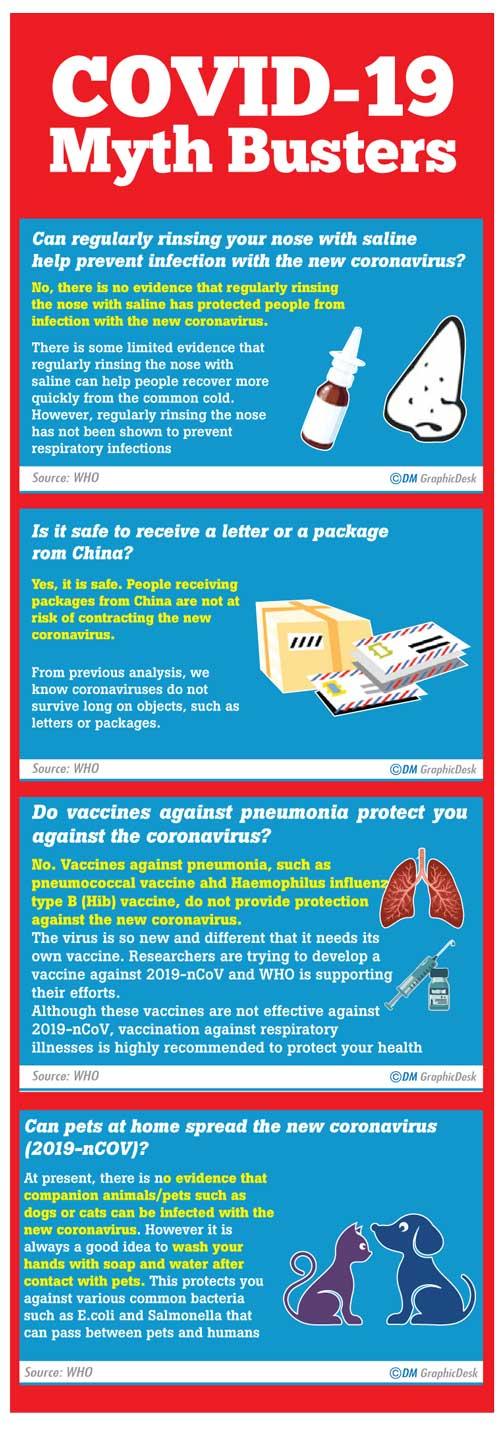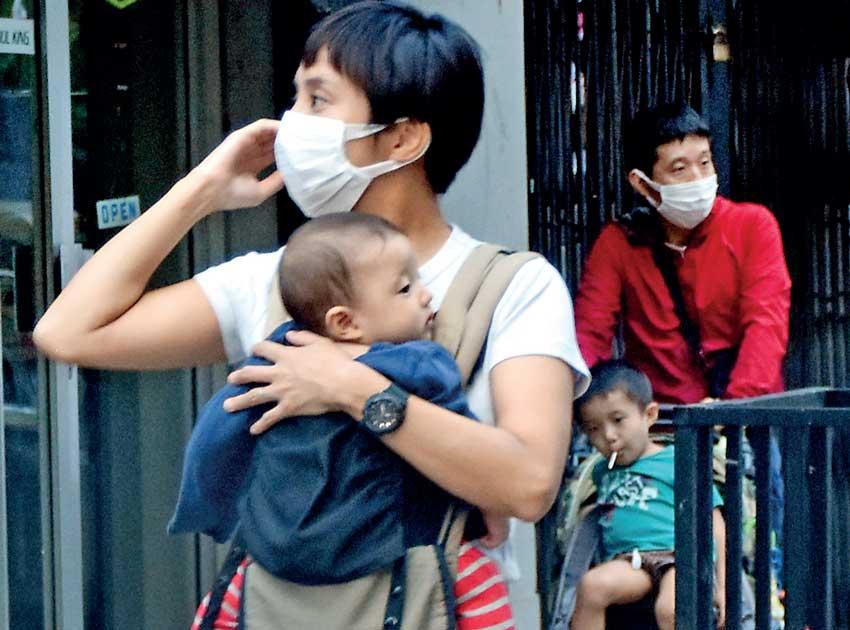
International Certificate in Coronavirus - What you need to know
There is a decent body of evidence demonstrating that exercise has the capacity to prevent against numerous viral infections. Considering this, it would not be a stretch to think that exercise may also have a protective effect against the coronavirus (Nieman, 2019).
Although, to date, there is no evidence demonstrating this with certainty.
However, we know that people who are fitter and healthier tend to fight off viral infections more efficiently. This means it is eradicated quicker, and the effects of the virus are much less severe.
So, if you are worried about the coronavirus, it is highly likely that exercise offers a great method of protection.
Exercise and the immune system
If you want to see how exercise impacts the immune system, you need to look at it from two distinct perspectives:
- How acute (a single bout) exercise effects your immune system
- How chronic (repeated bouts) exercise effects your immune system
- Acute effects of exercise on the immune system
- Woman running by the water

It is first important to note that how your body responds to an acute bout of exercise is dependent on the volume and intensity of that exercise bout
During a single bout of moderate intensity exercise that is less than 60 minutes long you will see an increase in blood circulation throughout the body. This increases the transportation of immune cells, and causes an increase in the secretion of anti-inflammatory cytokines.
These changes lead to a reduction in inflammation and an improvement in immune function.
However, if you are undertaking high intensity exercise for longer than 60 minutes, you see a slightly different outcome.
The high stress environment created by this intense exercise down regulates your immune cells – which is the exact opposite of what you see with moderate intensity exercise.
Additionally, you will also experience a spike in the secretion of your main stress hormones epinephrine and norepinephrine. This can lead to an increase in inflammation, which further down regulates immune system function.
While this may seem overwhelmingly negative, I should note that if you give your immune system time to recover after this type of session, then it adapts to become stronger than ever – which leads us to our next point quite nicely.
Does exercise boost your immune system?
If you exercise regularly and allow yourselves time to recover appropriately, it should come as no surprise that chronic exercise can have a positive effect on the function of your immune system
(Campbell, 2019).
As a result, it is well established that chronic exercise can stave off several diseases, including cancer, diabetes, heart disease, and metabolic syndrome.
And this holds true even the exercise programme you follow is of a very high intensity.
As I alluded to the above, a problem will only arise if you do not give your body enough time to recover after intense exercise.
But what about some of our more common diseases? I mean, does exercise prevent cold, and does exercise prevent the flu?
During a single bout of moderate intensity exercise that is less than 60 minutes long you will see an increase in blood circulation throughout the body. This increases the transportation of immune cells, and causes an increase in the secretion of anti-inflammatory cytokines
Does exercise prevent cold and flu?
- Does exercise prevent illness?
Or more specifically, does it prevent against two of the most common illnesses on the planet – being cold and flu?
And in short, yes.
Research has shown time and time again that actively undertaking an exercise regime will help prevent against the common cold. To put it simply, those who exercise more get the common cold less (Lee, 2014). Similarly, this same has been found with the flu. Interestingly, there is also some evidence to suggest that exercise also makes the flu vaccine more effective, offering another benefit when it comes to preventing one of the most common diseases on earth (Kohut, 2004). The authors of the paper wanted to ask whether other mechanisms were involved in the osteocalcin story.
To do this, they sequenced a large number of genes in mice with and without the receptor for osteocalcin (marked GPRC6A in the picture) (Mera et al., 2016). They found that compared to controls, the muscle of mice lacking the osteocalcin receptor had 80% less gene expression of IL-6. Additionally, these mice produced significantly lower levels of IL-6 when they exercised.
Through a series of in vivo (in the animal) and in vitro (in cell culture) studies, they confirmed that IL-6 increases production of glucose and fatty acids (i.e., the fuels we need to exercise). A surprising new finding was that IL-6 feeds back to the bone where it in turn stimulates the production of osteocalcin from the bone. This is called a feed forward loop. Exercise stimulates the bones to produce osteocalcin, which stimulates the muscle to produce IL-6, which then feeds back to the bone to produce more osteocalcin.
Certainly, IL-6 is not the only immune factor that is stimulated by exercise, as other “myokines” such as IL-8 and IL-15 are produced by muscles during physical activity, but it is an exciting piece of the puzzle. Hawley and colleagues from the Exercise & Nutrition Research Group at the School of Exercise Sciences at Australian Catholic University noted in their article, Integrative Biology of Exercise, that, “The finding of muscle crosstalk with other organs, including adipose tissue, liver, pancreas, bone, and the brain, provides a framework for understanding how exercise mediates many of its beneficial whole-body effects” (Hawley et al., 2014).
For example, interleukins have been shown to be involved in learning and memory and the functioning of the hippocampus (Menachem-Zidon et al., 2011). Future research will be needed to examine how exercise influences the immune system and how these immune cells communicate with other parts of the body and brain. In the meantime, exercise to keep a healthy immune system!
Protect yourself and others
The World Health Organization’s (WHO) standard recommendations for the general public to reduce exposure to and transmission of a range of illnesses are as follows:
- Frequently clean hands by using alcohol-based hand rub or soap and water.
- When coughing and sneezing cover mouth and nose with flexed elbow or tissue – throw tissue away immediately and wash hands.
- Avoid close contact with anyone who has a fever and cough.
- If you have fever, cough and difficulty breathing seek medical care early and share previous travel history with your health care provider.
- When visiting live markets in areas currently experiencing cases of novel coronavirus, avoid direct unprotected contact with live animals and surfaces in contact with animals.
- The consumption of raw or undercooked animal products should be avoided. Raw meat, milk or animal organs should be handled with care, to avoid cross-contamination with uncooked foods, as per good food safety practices.
Practicing Food Safety
The WHO1 has provided the following guidelines on how to practice food safety effectively:
- Use different chopping boards and knives for raw meat and cooked foods.
- Wash your hands between handling raw and cooked food.
- The flesh of sick animals and animals that have died of diseases should not be consumed.
Even in areas experiencing outbreaks, meat products can be safely consumed if these items are cooked thoroughly and properly handled during food preparation
The finding of muscle crosstalk with other organs, including adipose tissue, liver, pancreas, bone, and the brain, provides a framework for understanding how exercise mediates many of its beneficial whole-body effects
Guidelines on How to Stay Healthy while Travelling
WHO has issued the following guidelines on how to remain healthy while travelling, in order, to help avoid being infected or spreading the coronavirus.
- Avoid travel if you have a fever and cough.
- If you have a fever, cough and difficulty breathing, seek medical attention care early and share previous travel history with your health care provider.
- Avoid close contact with people suffering from a fever and cough.
- Frequently clean hands by using alcohol-based hand rub or soap and water.
- Avoid touching eyes, nose or mouth.
- When coughing and sneezing, cover your mouth and nose with a flexed elbow or tissue - throw the tissue away immediately and wash hands.
- If you choose to wear a face mask, be sure to cover mouth and nose - avoid touching the mask once its on.
- Immediately discard single-use masks after each use and wash hands after removing masks.
- If you become sick while travelling inform crew and seek medical care early.
- If you seek medical attention, share travel history with your health care provider.
- Eat only well-cooked food.
- It is also important to avoid spitting in public and avoid close contact and travel with animals that are sick.
(The writer is The vice President of the World Disability and Rehabilitation Professionals Association. He possesses an International Certificate in Coronavirus and writes about what you need to know during an epidemic)

 International Certificate in Coronavirus - What you need to know
International Certificate in Coronavirus - What you need to know It is first important to note that how your body responds to an acute bout of exercise is dependent on the volume and intensity of that exercise bout
It is first important to note that how your body responds to an acute bout of exercise is dependent on the volume and intensity of that exercise bout